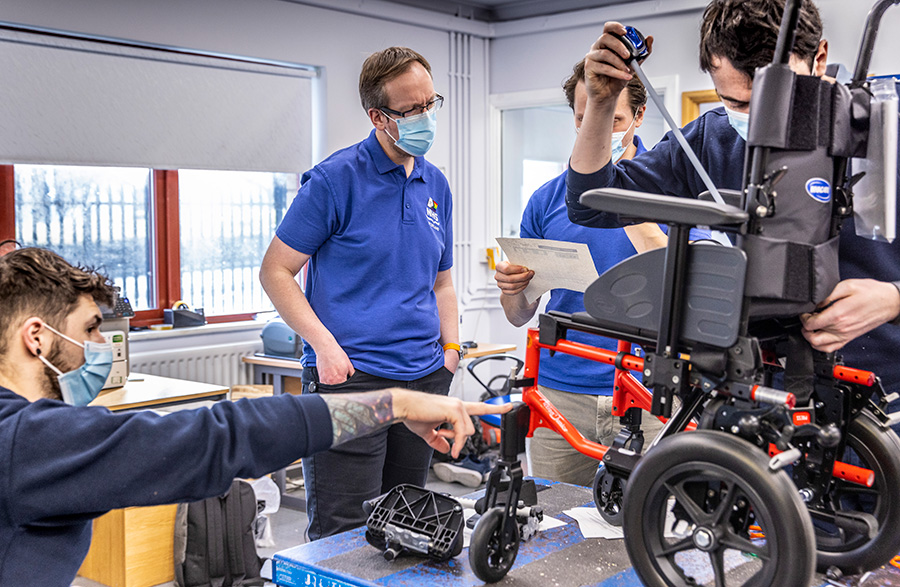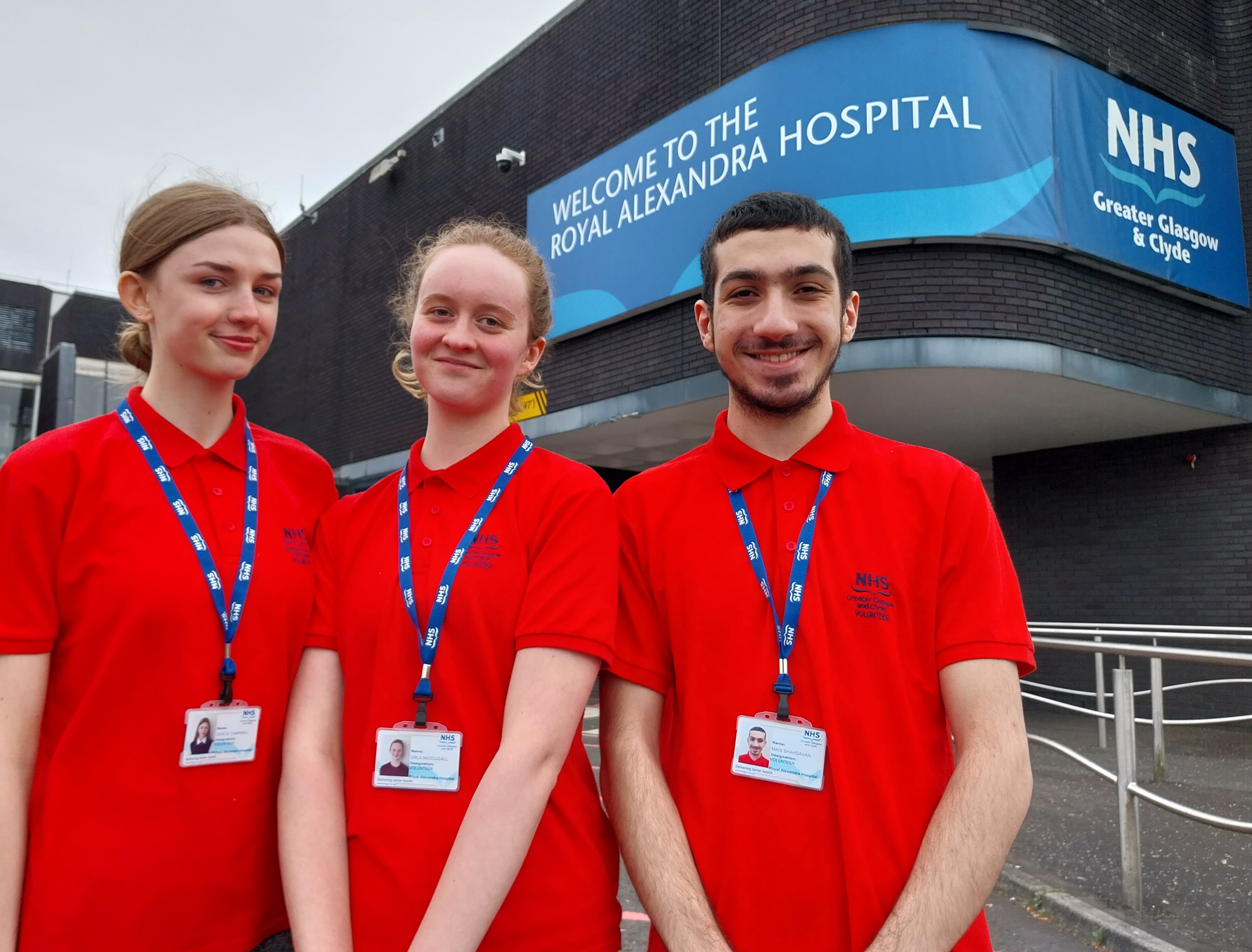Previous
Cardiac clinical physiologist
You’ll need to complete a postgraduate-level work-based training programme to become a clinical engineer in the NHS.
Clinical engineers combine their design and development, problem-solving, and curiosity skills with their engineering knowledge to:
They specialise in one of four areas:
Some clinical engineers train in industry before bringing their skills and knowledge to the NHS.

School subjects that could lead to a career as a clinical engineer include:
Speak to your guidance teacher or careers adviser about subjects offered at your school.

You may find it helpful to get some healthcare experience by doing a work placement or volunteering. You’ll get training, increase your knowledge, and learn new skills. This could help you when applying to college, university, or a new job with NHSScotland.
Becoming a clinical engineer in the NHS is an exciting career! As a trainee, you'll complete a work-based training programme at postgraduate level.
The Scottish Medical Physics and Clinical Engineering Training Scheme is a well-established route to becoming a clinical engineer in the NHS.
As a trainee clinical engineer, you’ll complete a master’s degree at SCQF level 11 in your first year. In the second year, you’ll get experience working in different clinical engineering specialisms. In year 3, you’ll focus on a single area to specialise in or lead an innovation project related to your chosen specialism.
Once you complete your training, you’ll register as a clinical scientist with the Health and Care Professions Council (HCPC).
You can apply for training opportunities on our recruitment website. You'll need an undergraduate honours degree at SCQF level 10 in one of the following subjects:
Search for university degree programmes on My World of Work.
Widening participation supports adult learners who want to go to university. If you’re an adult with few or no qualifications, you could get into higher education through the Scottish Wider Access Programme (SWAP).
Many universities also provide access programmes to help you get the degree entry qualifications you need.
Clinical engineers commission, calibrate and monitor medical equipment and surgical instruments to make sure they are safe for use. They make, improve, or adapt assistive technology to help people live healthier and more independent lives. Also, they design and develop bespoke medical devices and software to meet the needs of clinical services.
The day-to-day tasks you'll do will depend on the specialist area you're working in.
In clinical measurement, you’ll help to provide specialist diagnostic tests in clinical areas such as urology, ophthalmology, and cardiology.
Some typical tasks include:
In medical equipment management, you’ll maintain equipment used to deliver healthcare services to make sure it is working properly and safe to use.
Some typical tasks include:
Engineering design and development teams design and develop bespoke medical devices to meet the needs of a range of clinical services. These teams have a range of expertise to include mechanical, electronic, and software devices.
Examples include wearable electronic devices to monitor vital signs, 3D printed moulds to help with patient positioning, and web or mobile applications that perform calculations on clinical data and present this data appropriately to aid clinical decision making.
Some typical tasks include:
In rehabilitation engineering, you’ll manufacture or adapt assistive technology, including wheelchairs, artificial limbs, and robotic aids, to meet a person’s needs.
Some typical tasks include:
Useful skills for a clinical engineer include:
It’s likely that you’ll work in a multidisciplinary team, which could include:
You may visit patients in their homes or meet them in a clinic. You’ll also be creating or modifying devices in a workshop environment.
As a clinical scientist in clinical engineering, you’re expected to undertake continuous professional development (CPD) activities to:
Clinical scientists must meet the HCPC’s standards for CPD. Learn more about the HCPC’s guidance on CPD activities.
During your career as a clinical engineer, you can also work towards additional qualifications, such as:
Gaining qualifications will help your career prospects, leading to more senior roles or the chance to advance to specialised areas of service.
Clinical scientists in clinical engineering must be registered with the HCPC to work in the NHS. They may also be affiliated with the following professional bodies:

Discover the range of healthcare science careers you can choose in the NHS.
Healthcare science
Our blog includes how-to guides, case studies, and career resources.
Discover more